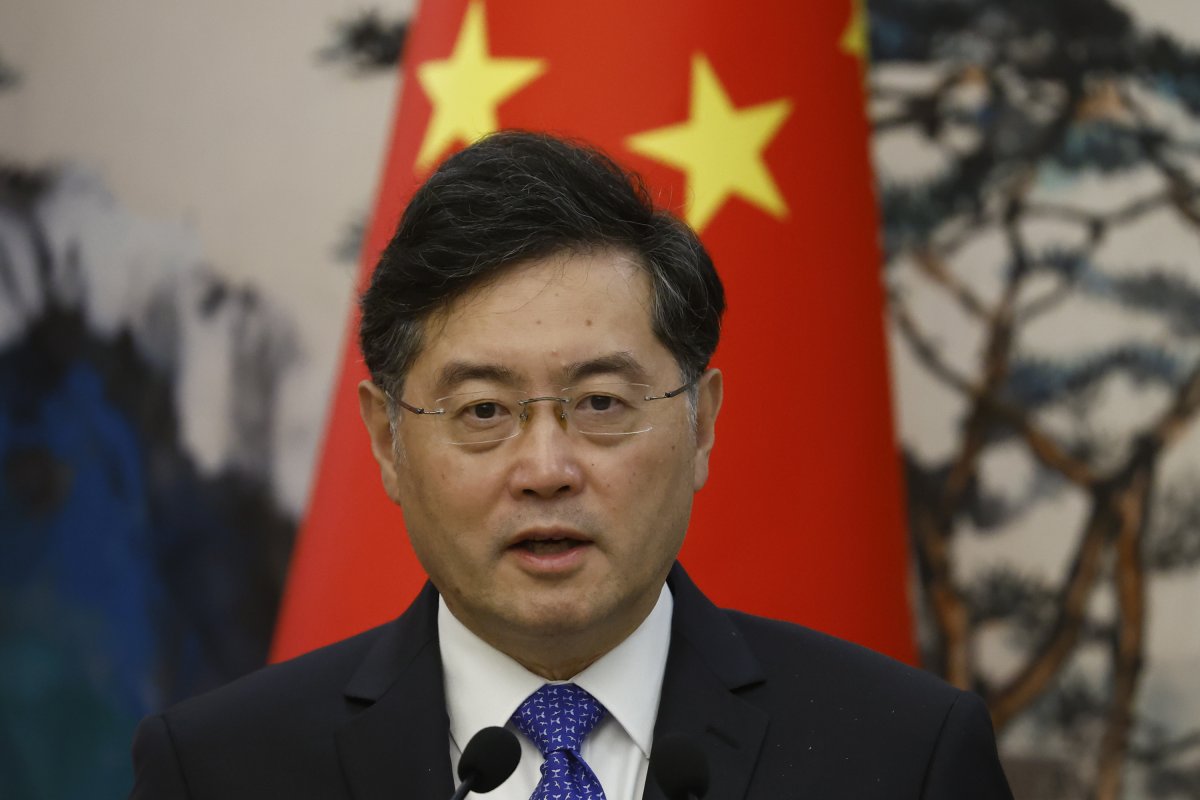Qin Gang, China's former foreign minister and a loyalist of Chinese leader Xi Jinping, may have been compromised by another nation state, according to the country's top disciplinary body.
"Diplomatic and foreign affairs cadres are the main force of foreign affairs work; they are on the front line of foreign exchanges, especially in the struggle with Western hostile forces, and face a relatively high risk of infiltration, incitement and corruption," Zhang Jiwen, a senior official with the Chinese Communist Party's Central Commission for Discipline Inspection, said in a now-deleted article on the website of the CCDI's biweekly journal.
Zhang is a senior disciplinary figure embedded within the party's Central Foreign Affairs Commission, which oversees Beijing's diplomatic work under Xi's direction. Zhang's warning was the first official hint at the fate of Qin, who was abruptly dismissed in July following a period of absence.
Last month, Qin, along with other senior government and military officials, was stripped of his central government title in a move that effectively banished him elite Chinese politics for good. It was an unexpected outcome for a young party cadre who had risen swiftly through the ranks under Xi's watchful eye, and who served just 18 months as ambassador to the United States before his promotion in the Foreign Ministry.
No official explanation followed Qin's removal. Wang Yi, whom Qin had replaced as foreign minister, resumed his old post and is concurrently office director of the foreign affairs commission, a role that sees him act as a quasi-national security adviser to China's president.
Observers had earlier suggested that Qin was ousted over an extramarital affair with former state media journalist Fu Xiaotian. Qin, who is married with a son, was said to have had an American-born child with Fu by surrogacy. However, the circumstances surrounding his removal led to more questions than answers—sex scandals haven't led to dismissals of Chinese political elites in the past.
James Lewis, a senior researcher at the Center for Strategic and International Studies think tank in Washington, D.C., told Newsweek in a recent interview: "If the CCP was going to start dismissing people for having affairs, there would be no one left. It's either corruption, espionage or being disloyal to Xi, and espionage seems the most likely."
Last month, Tsai Ming-yen, Taiwan's intelligence chief, confirmed Beijing's investigation into Qin but linked it a "sex scandal."

The central theme of the article published by China's anti-graft authority suggests a foreign power—most likely a Western nation—may have exploited Qin's weaknesses to compromise him. It also warned Chinese diplomats about other forms of corruption that may be used by external forces to subvert the country's diplomatic service.
Zhang, the author, identified three main areas of risk for Chinese diplomats, including "political risk," "integrity risk" and "administrative risk." Although Chinese diplomats were most vulnerable to the first, Zhang cautioned against the risk of "illegal acceptance of gifts," as well as the use of diplomatic networks to seek favors from other countries for "personal gain."
Chinese diplomats should be mindful of their activities outside work hours, the article said. "There is a higher risk of lax self-discipline and lack of discipline, law and ethics 'outside of the eight hours,'" Zhang wrote.
Chinese diplomats have, in the past, experienced greater scrutiny. During former Chinese leader Mao Zedong's time, foreign affairs workers were viewed suspiciously because of their interactions with foreign countries. As China's relations with the U.S. and other countries have soured, the scrutiny of diplomats has returned.
Qin was last seen meeting his counterparts from Russia, Vietnam and Sri Lanka on June 25. Fu, the former state television reporter, has been incommunicado since her last message posted on WeChat, a Chinese social messaging app, in May.
Uncommon Knowledge
Newsweek is committed to challenging conventional wisdom and finding connections in the search for common ground.
Newsweek is committed to challenging conventional wisdom and finding connections in the search for common ground.
About the writer
Aadil Brar is a reporter for Newsweek based in Taipei, Taiwan. He covers international security, U.S.-China relations, and East Asian ... Read more
To read how Newsweek uses AI as a newsroom tool, Click here.






